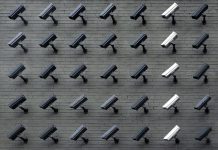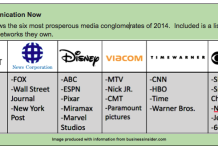Believe it or not, there was a time when giant corporate behemoths like Google, Facebook, Amazon, and Apple simply would not be able to exist.
In 1890, President Benjamin Harrison signed the Sherman Antitrust Act into law, essentially outlawing trusts, or businesses groups that join forces to dictate market pricing.
It also outlawed contracts, conspiracies, and other practices intended to restrain trade and create intra-industry monopolies.
“The Sherman Act says that competing individuals or businesses can’t fix prices, divide markets, or attempt to rig bids. The Act also laid out specific penalties and fines for violating its rules.”
In 1904, President Theodore Roosevelt acquired the sobriquet “trust buster” after relying on the law to break up the Northern Securities Company monopoly dominating railroad routes from Chicago to the Pacific Northwest.
Satirist author Mark Twain dubbed the era from about the 1870s to 1900 “the Gilded Age” due to its being a period of obscene levels of political scandal when the famed “Robber Barons,” the so-called “Captains of Industry,” presided over the railroads, oil and electricity companies, and America’s first national and international corporations.
President Ronald Reagan stopped enforcing the Sherman Act in 1983 during the eight-year looting of labor unions and New Deal-era social safety nets in which he slashed the top personal and corporate tax rates from 70 percent down to 50 and then down to 28.
After Wednesday’s widely publicized congressional hearing with Facebook’s Mark Zuckerberg, Amazon’s Jeff Bezos, Apple’s Tim Cook, and Google’s Sundar Pinchai, could the end of today’s technology monopolies be within reach?
After grilling top tech executives for nearly six hours, U.S. lawmakers informed the companies’ heads they have “too much power,” are complicit in censoring political speech, disseminating fake news, and “killing” the the American economy.
The hearing was a culmination of over a year of preparation in which lawmakers collected over a million documents and conducted hundreds of hours of interviews.
Although Mark Zuckerberg has testified several times before congressional sub-committee panels, it was the first time all four technology personalities testified live since lawmakers’ investigation began.
Amazon CEO Jeff Bezos–whose personal wealth ballooned $13 billion in a single day during the COVID-19 pandemic–argued his $1.49 trillion company does not constitute a monopoly, prompting Rep. Pramila Jayapal (D-WA) to grill him about how Amazon employees reportedly used third-party seller data to help target products Amazon should offer customers, something an Amazon executive denied under oath during a previous hearing.
This is part of what makes Amazon a monopoly that disadvantages sellers, Rep. Jayapal argued, explaining:
“You have access to data that other sellers do not have. The whole goal of this committee’s work is to make sure that there are more Amazons, that there are more Apples, that there are more companies that get to innovate and small businesses get to thrive. . . .That is why we need to regulate these marketplaces so that no company has a platform so dominant that it is essentially a monopoly.”
Rep. Lucy McBath (D-Georgia) played Bezos a bookstore owner’s emotional testimony about how Amazon’s anti-competitive behavior de-listed her business from Amazon.com.
Bezos’ claim of not being aware of Amazon’s data collection policies led Dania Rajendra, director of Athena, a non-profit group of activists against Amazon’s centralized power, to assert:
“Today’s non-answers from Jeff Bezos prove that he lacks the will or competence to change Amazon through his own leadership. It is now up to the subcommittee to take what they’ve learned and issue a strong set of recommendations to meaningfully check Amazon’s out-of-control power. The future of our economy and our democracy depend on it.”
Mark Zuckerberg argued Facebook “got here the American way,” defending his company with:
“We started with nothing and provided better products that people find valuable. As I understand our laws, companies aren’t bad just because they are big. Many large companies that fail to compete cease to exist.”
Inquiring about Facebook’s history of acquiring or copying competitor platforms’ main features, Rep. Jerry Nadler (D-NY) stated:
“This is exactly the type of anti-competitive acquisition the antitrust laws were designed to prevent, and this should never have happened in the first place. It should never have been permitted to happen. It cannot happen again.”
Rep. Jayapal explained:
“Facebook is a case study, in my opinion, in monopoly power. Because your company harvests and monetizes our data, then your company uses that data to spy on competitors and to copy, acquire and kill rivals. Facebook’s very model makes it impossible for new companies to flourish separately, and that harms our democracy, it has harms mom-and-pop businesses and it harms consumers.”
When Rep. Hank Johnson (D-Georgia) informed Apple CEO Tim Cook the congressional investigation exposed some concerns about rules governing the App Store review process not being available to apps’ developers, Cook replied the App Store cannot be classified as a monopoly since it does not charge for 84% of apps, and Apple has not increased commissions on apps since 2008.
Questioning Cook about allegations Apple removed competitors’ apps from the App Store, and screen time management apps’ creators accusing Apple of removing their apps from the store after launching its own similar version, Rep. McBath stated:
“The timing of the removals seems very coincidental. If Apple wasn’t attempting to harm competitors in order to help its own app, why did Phil Schiller, who runs the App Store, promote the Screen Time app to customers who complained about the removal of rival parental control apps?”
Google’s Sundar Pichai fielded questions about his company’s advertising and data practices, and use of other companies’ content for its own pages.
Rep. Jayapal asked him how anyone could insist Google isn’t a monopoly if it controls more than 90% of the global online search market.
Rep. David Cicilline (D-RI) accused Google of stealing small businesses’ content, characterizing it as a “walled garden” that traps users.
So, could this spell the beginning of the end of big tech?
Could we in the near future start to see smaller, local tech companies emerge from these corporate gluttons?
Image credit: courses.lumenlearning.com





